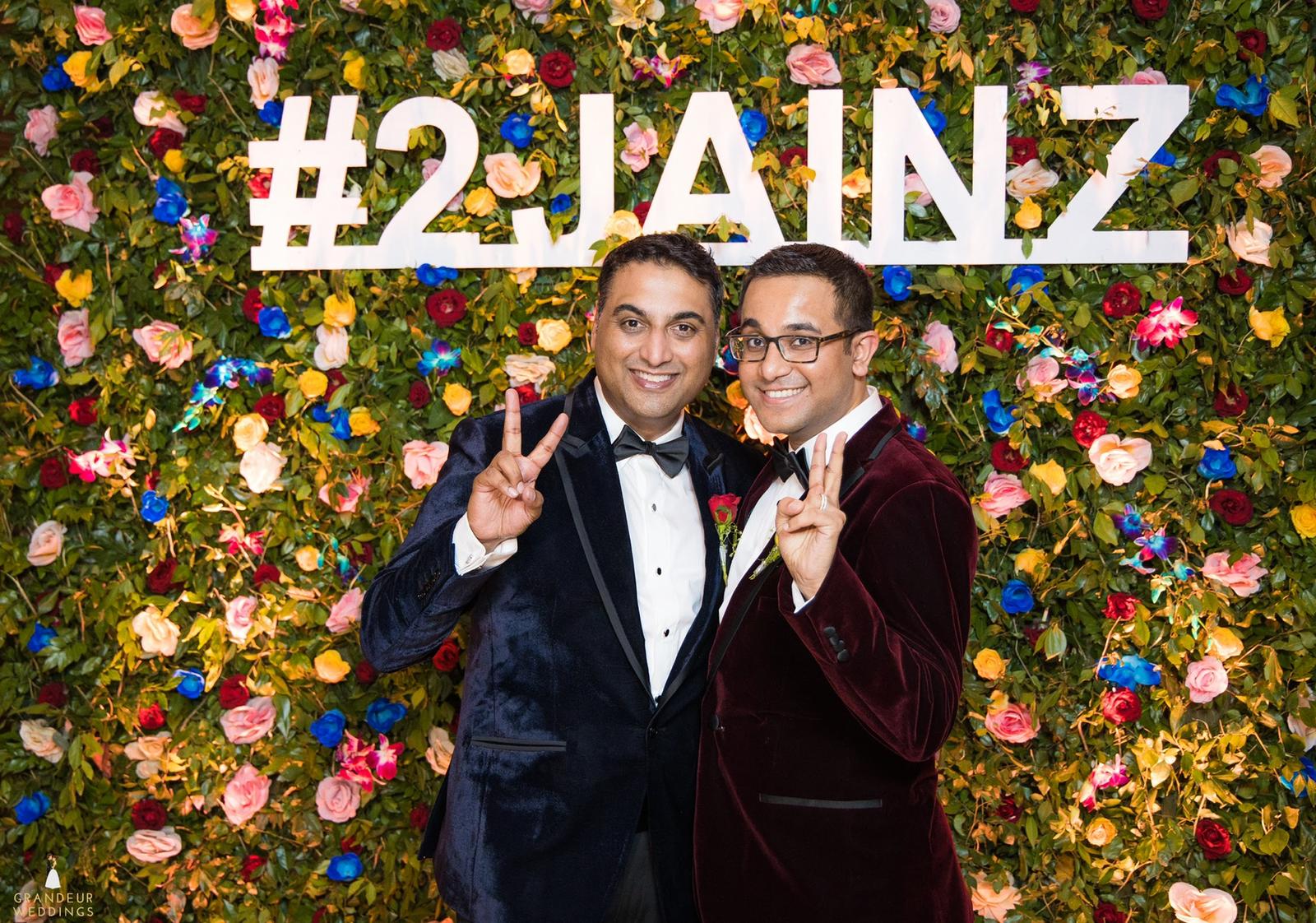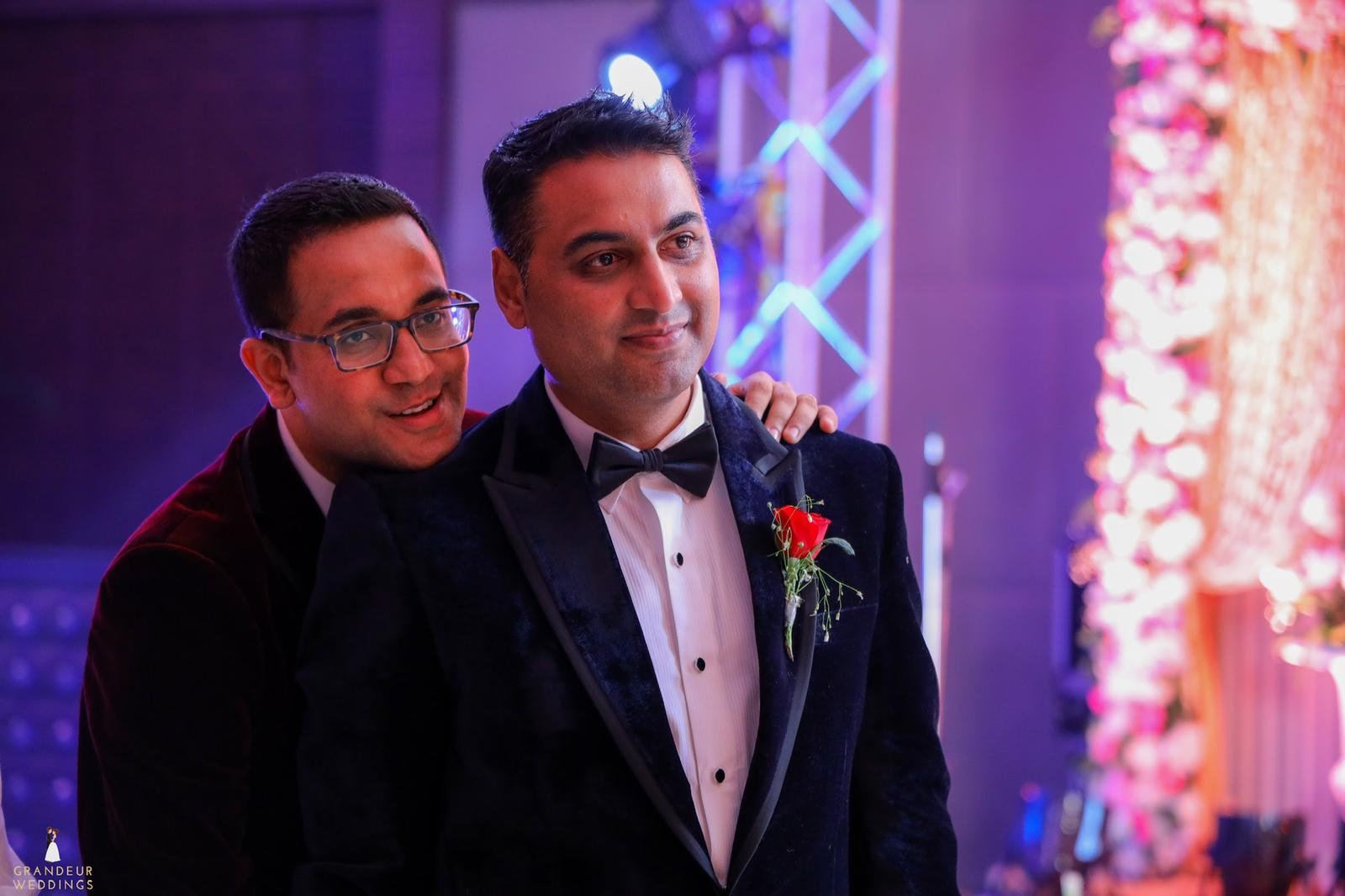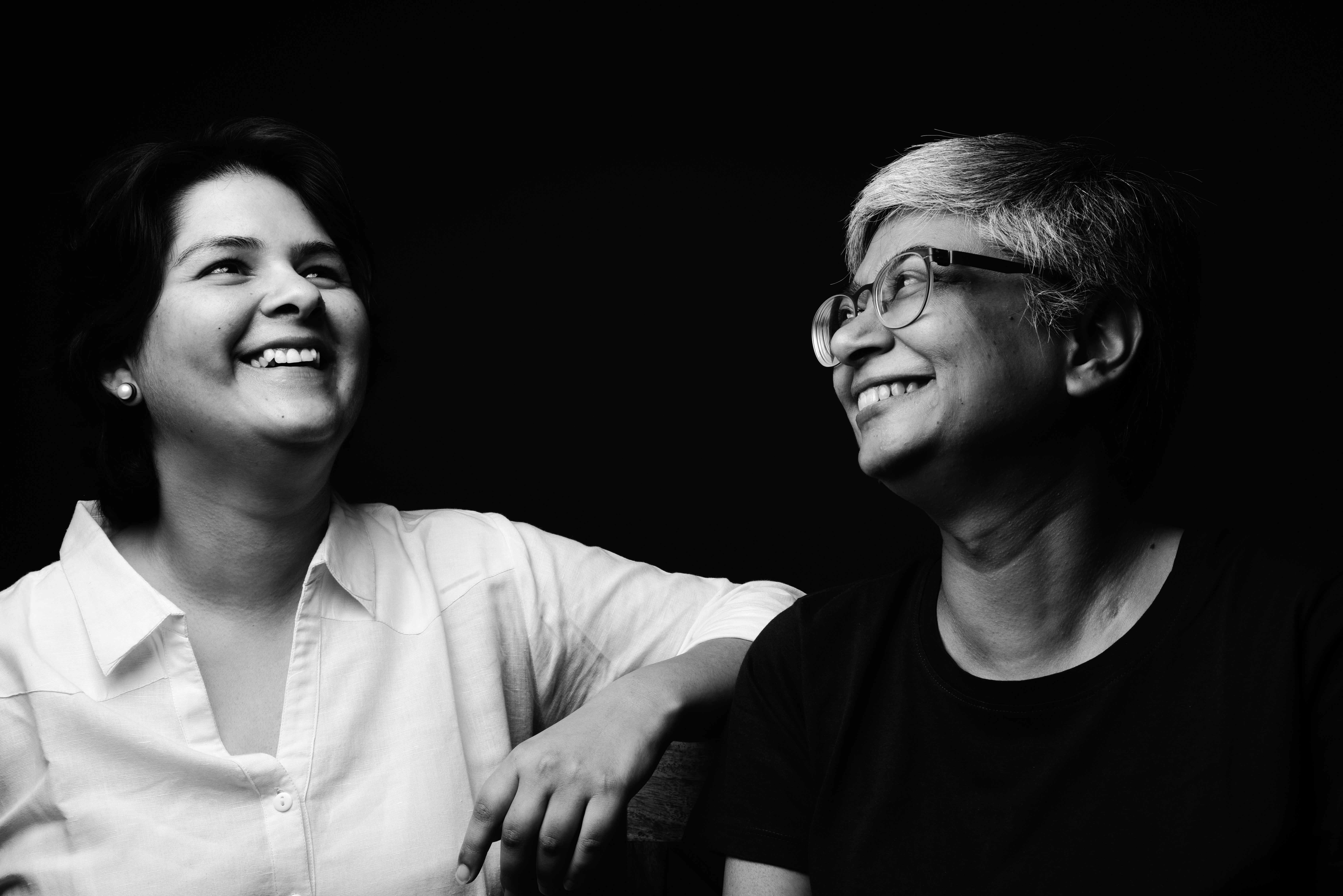Meet the couples fighting for same sex marriage in India
With gay sex only decriminalised in India in 2018, campaigners say marriage equality is the logical next step, as Namita Singh reports from Delhi


Vaibhav Jain had never been to a Pride parade in India for fear of being outed. When he moved to the US in 2011 to pursue his higher education, he decided to attend one for the first time as a spectator. Little did he know that it was where he would meet his life partner – a man who would join him in his legal battle for same-sex marriage to be recognised in India.
“It was hot and humid and I was excited. And that was the moment when I saw my husband, Parag Mehta,” Jain tells The Independent. “He was wearing this cute white T-shirt with the word ‘desi’ written on it, holding this giant Pride flag and he was waving it,” he recalls.
Mehta says he remembers the photo from the Pride that Jain had sent him on Facebook a day later, along with a personal note where he confessed to being able to attend the parade for the first time in his life without fear, and as well as about his captivation with him. They went out on a coffee date and, five years later, got married before a circuit judge in Washington DC on 19 January, 2017.
It has been more than four years since they tied the knot, yet they are not recognised as spouses in their country of origin, India, where gay marriage is still not legal.
In March 2020, the Indian consulate at New York refused Jain and Mehta’s application for registration of their marriage under the Foreign Marriage Act (FMA), on grounds of their sexual orientation alone, prompting them to file a plea before Delhi’s High Court.
In the petition pending before the court, they demand not just their registration as a couple under the FMA but that the act should recognise marriages between consenting adults irrespective of their gender and sexual orientation.
They are joined in the fight for the legalisation of same-sex marriage in India by Delhi-based couple Kavita Arora and Ankita Khanna, both mental health practitioners.
Arora and Khanna petitioned the Delhi High Court after a government official in September refused to solemnise their marriage under the Special Marriages Act (SMA) because of their sexual orientation. The SMA and FMA are provisions under law that allow Indian nationals to register their marriage, whether they wed in the country or abroad respectively.
Both the couples are represented in court by another same-sex couple – senior advocate Menaka Guruswamy and advocate Arundhati Katju – who were the faces of a historic verdict in 2018 when India’s Supreme Court decriminalised same-sex relationships.

While gay sex is no longer a crime in India, society’s attitude towards the LGBT+ community at large still remains mired in suspicion, fear and apathy, even though some argue that homosexuality is not alien to the country’s history and was even accepted as part of its social fabric before British colonialists imposed more conservative notions of sex and sexuality on the population.
“Marriage is important because it is a commitment and it is a commitment that is recognised in the eyes of the law as well as society,” says human rights activist Anjali Gopalan, whose NGO Naz Foundation was among the petitioners that successfully fought the 160-year-old law banning sex “against the order of nature” in 2018. “Because be it religious ceremony or the inheritance rights, they revolve around the [married] couple,” adds Gopalan.
For both couples, the decision to go to court was influenced by the situation brought on by the coronavirus pandemic. Arora and Khanna in the plea say they realised that “life is unpredictable and transient” and that “they want to protect each other’s financial and emotional security”.
“The need to nominate one’s partner in health and life insurance, to protect the right to inheritance and to ensure access to the shared household, financial and other resources has never been more pressing than during the pandemic,” they argue in their petition.
This idea – that the rights marriage automatically grants to heterosexual couples should be extended to gay partners as well – had been playing on the minds of Jain and Mehta as well. They discussed it for the first time with their lawyers when they were visiting India in November 2019. In part, it was also because they’ve both grown up struggling with their sexuality.
“I come from a place where I have resources and have support from my family, but there are so many who are still struggling,” says Jain. He says he was around 13 to 14-years-old when he first found out about the terminology for homosexuality. “I didn’t know what it [the word gay] was, but I knew enough to not talk about it,” he confides.

As a child, Mehta, like his partner, hid his sexuality from his family. Both admitted to suffering from depression brought on by society’s conservative and often hostile attitude towards the queer community. “I was about eight years old when it dawned on me that I had an attraction towards boys. I didn’t have a name for it,” recounts Mehta.
He was 23 when he came out to his parents and told them about his past battles with thoughts of self-harm. Their reaction, especially that of his father’s, overwhelmed him.
“The greatest thing ever happened,” Mehta said, “and that is, my dad got up from where he was sitting. He sat next to me, he put his arm around me and said, ‘beta [son] we can never hate you. You are our hero and you are our heera [diamond] and we will always love you.’
“I always get emotional telling this, but it is a really big deal. The idea that a parent in that moment of shock, and confusion, maybe fear for them, in that his singular thought was that my child is hurting and my one and only job right now is to let him know that he is loved,” he said.
His father wrote an emotional letter to all their immediate family members about what had happened and asked them to respect their son’s decision – a big step in a society where parents are known to shun children for their gender and sexuality.
As for Arora and Khanna, they lived in the shadow of the law that criminalised sex between gay couples for the first six years of their relationship. Though they had known each other since 2006, it was around January, 2012, that they realised that they were in love.
“The petitioners have spent their lives together for the last years and have been emotionally, financially and socially bonded in each other’s life like a married couple,” read their plea. But after eight years of marriage, while any couple “would have joint bank accounts, loans, bought a house together,” for Khanna, getting proof of residence is also a struggle, the couple told the court. Marriage with itself brings a “bundle of rights” without which, they argued, they are “strangers in law”.
“They cannot take medical decisions for each other if the other partner is unable to consent to a medical procedure or take end-of-life decisions,” they said.
History owes an “apology” to the members of the queer community and their families, the Supreme Court observed in 2018, “for the delay in providing redressal for the ignominy and ostracism that they have suffered through the centuries”.
It is from this conclusion of the Supreme Court that the two couples picked up their battle. “Equality before the law and equal protection of the law for LGBT+ persons is not limited to protecting same-sex couples from punishment or stigmatisation,” argue Khanna and Arora.
“Indeed, what the petitioners seek is not the right to be left alone, but the right to be acknowledged as equals and to be embraced with dignity by the law,” they say in their plea.



Join our commenting forum
Join thought-provoking conversations, follow other Independent readers and see their replies
Comments